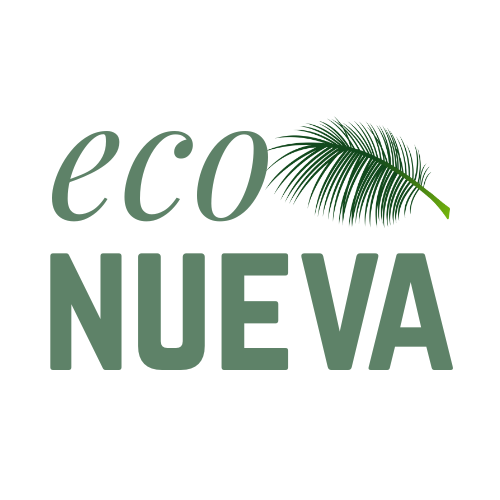Why Farm Hopping Is The Most Radical Way To Travel Right Now
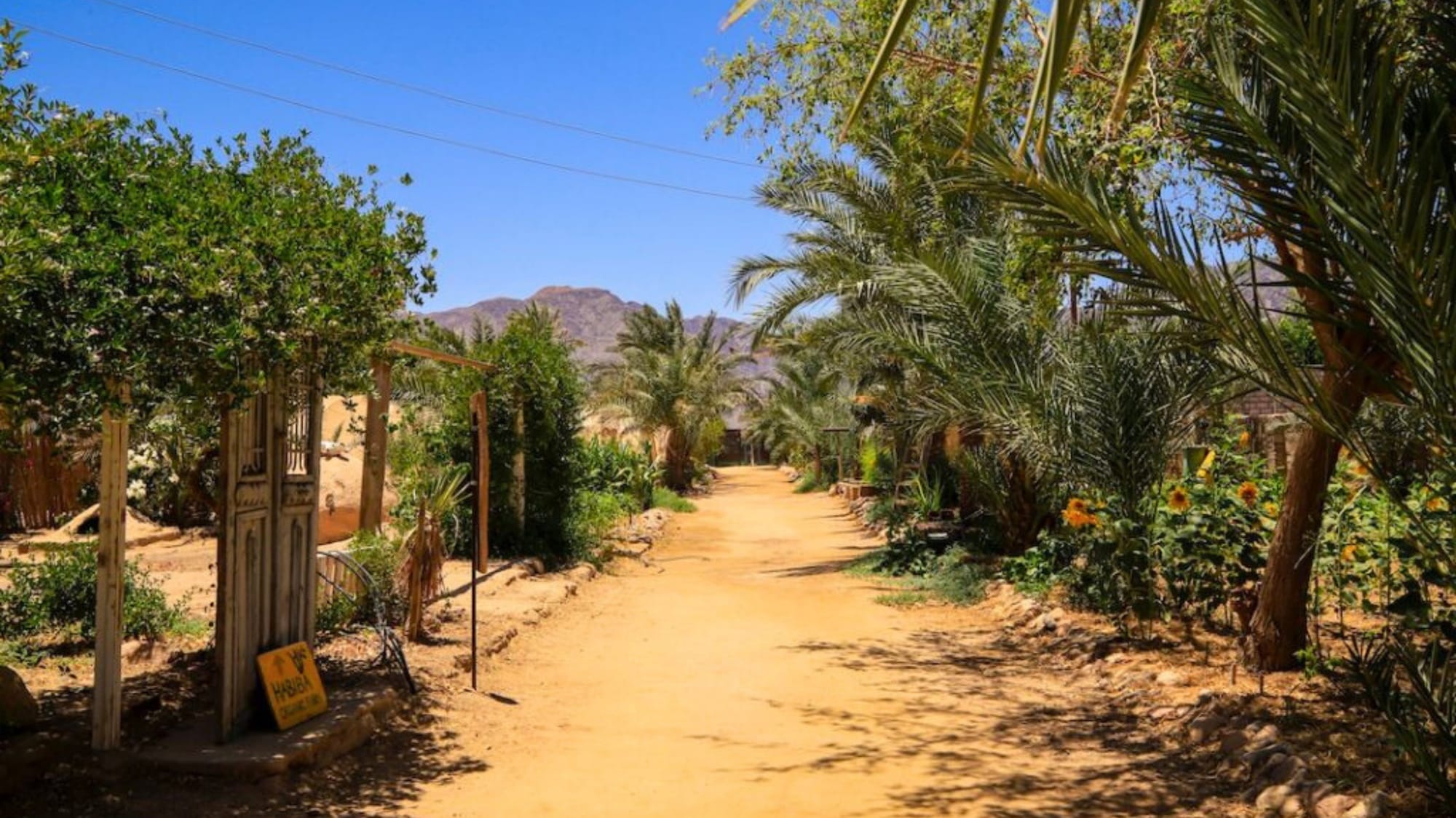
Travel has lost its soul. We’ve turned it into a checklist: flights, resorts, curated experiences with just the right amount of "local color." Even eco-tourism has been turned into something glossy and staged.
But under all that noise, something quieter is rising. Something slower. Something real.
It’s called farm hopping and it might just be the most radical way to travel in this modern time. It's rooted in land, in labor, in community, in the rhythms we forgot we belonged to.
You stay at real farms run by real people. You’re expected to clean up after yourself, maybe sweep the shared space, help with small projects if they’re happening. You’re not a customer, you’re more like a guest at a friend’s house. That’s the vibe.
You eat what’s grown there. You meet the people behind the farm. You ask why they chose this life, how they ended up living outside the system. It’s not just about "getting away" it’s about getting closer to something that actually matters.
In this post, I’ll explain what farm hopping is, what makes it different, and why it’s the kind of travel that sticks with you long after you leave.
Table of Contents
What Is Farm Hopping?
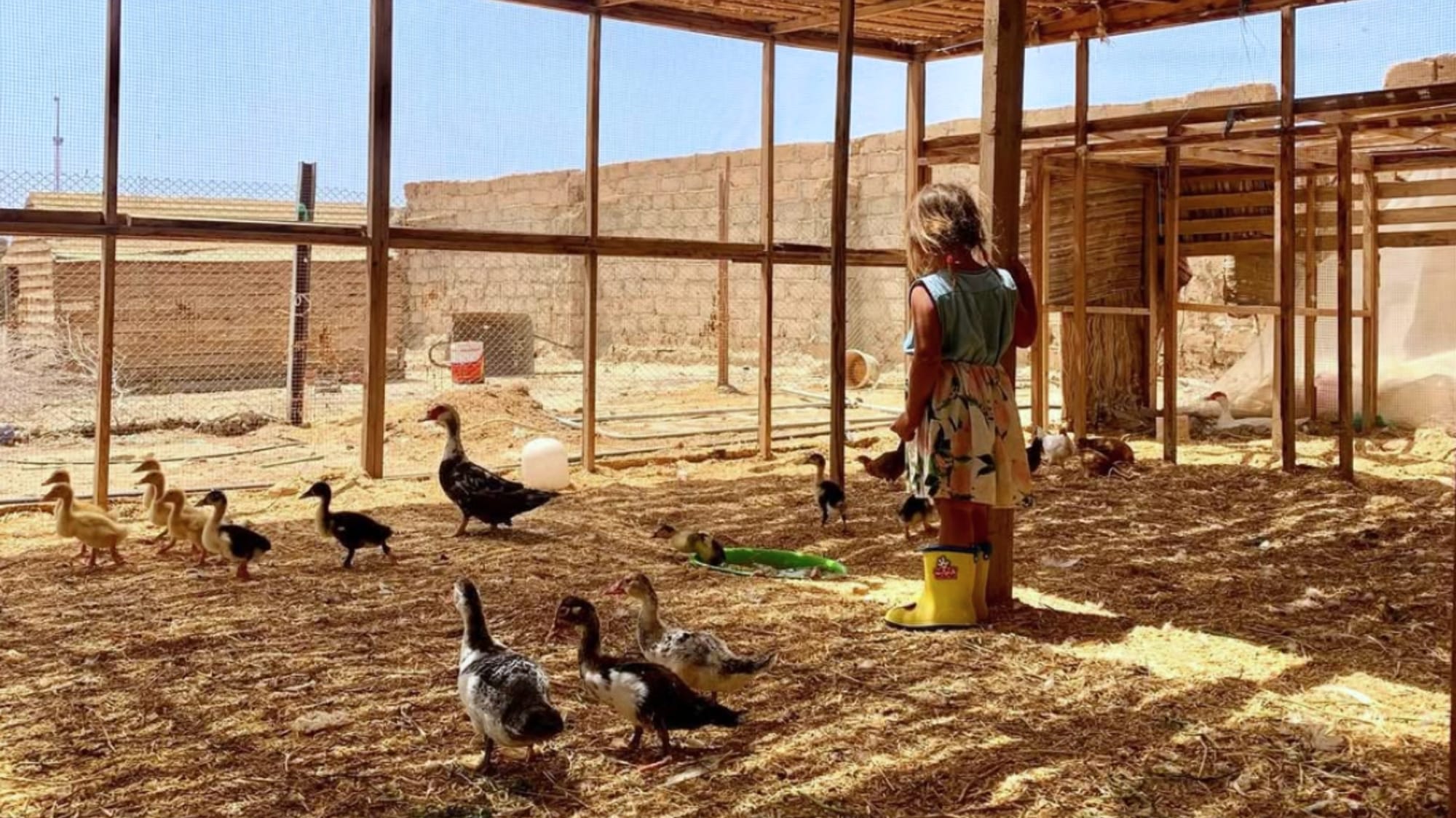
Farm hopping simply means traveling between real working farms and eco-projects. You are not just visiting but also volunteering and participating.
It’s not a luxury retreat or an influencer-curated tour. It’s hands in the soil, animals at your feet, and real conversations over homegrown food.
Instead of skimming through destinations, you deep dive into places. You wake up with the sunrise, feed the animals, learn how compost works, and share meals made from farm harvest.
Farm hopping connects you with the land, the people who tend it, and the quiet rhythms of nature.
Why It’s Radical Compared To Mainstream Tourism
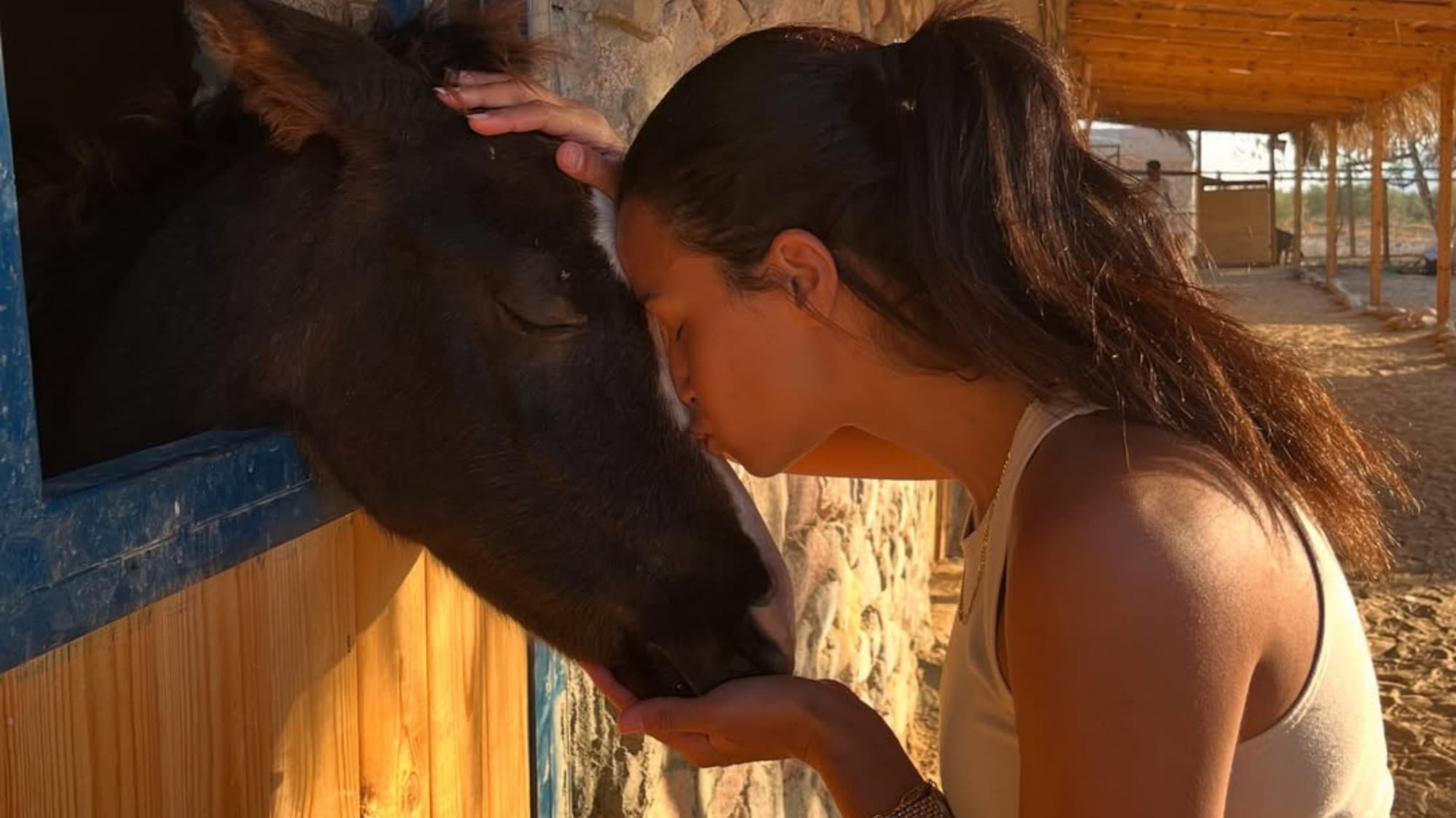
Most travel today is extractive. You go to a place, consume it, snap photos, use resources, and leave. Even the eco versions often feel polished and performative luxury retreats with a green filter on top.
Farm hopping is the opposite. It’s not about consuming a place it’s about becoming a part of it.
You’re not just watching someone else’s culture behind a lens. You’re up at sunrise helping feed the animals. You’re chopping vegetables harvested that morning. You’re building compost, collecting eggs, or helping fix the goat fence that broke in the night.
For example, at Karima’s Farm Camp, regenerative farm in Nuweiba, guests don’t just stay - they participate. One morning you might be scooping out duck ponds or learning how to make jam from guava fruit. The next day, you’re sitting around a shared table with Bedouin neighbors, eating bread baked in an earth oven and talking about how the sea used to come all the way to the mountain.
At Dayet Younus, a horse ranch in Nuwewiba, people come not just to ride horses but to learn how to connect with them, feed them (twice a day), brush them, walk them slowly into trust. It’s emotional labor as much as physical and surely it leaves an impact.
This kind of travel is meaningful because you leave a piece of yourself behind. A shared moment. A fence you helped mend. A horse that now knows your scent.
There’s no curated wellness journey here.
The healing comes through the real stuff, the ache in your arms after a morning of planting trees. The silence of the desert at night. The joy of drinking tea with people who are doing this work not for show but for love.
So, farm hopping doesn’t promise you escapism. It promises reconnection with the Earth. And in a world addicted to consumption, that alone makes it radical.
Healing The Land
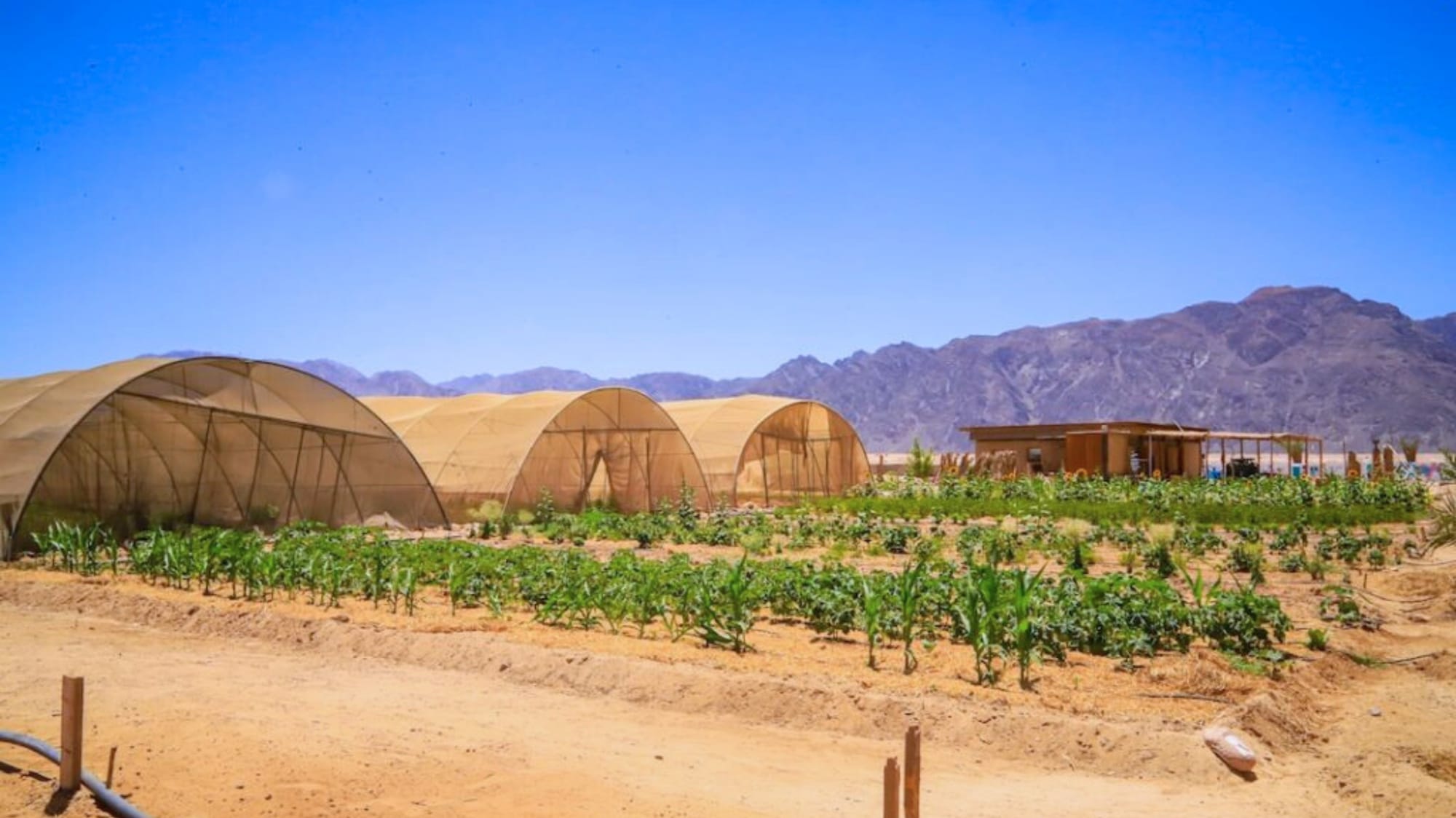
Every farm you visit is part of a quiet revolution. Regenerative agriculture is literally bringing life back to the desert. These aren’t agribusiness operations or commercial permaculture centers. They’re families, dreamers, and earth-lovers working with what they have: compost, animals, greywater, native trees, and ancient Bedouin wisdom.
At Karima’s Farm Camp, the soil was once pure sand. Today, it holds moisture, smells alive, and grows food thanks to years of composting kitchen scraps, rotating free-range animals, and refusing chemicals of any kind.
Across the road at Habiba Organic Farm, you’ll find hand-dug canals that channel scarce water, shade trees planted by hand, and Bedouin youth learning how to farm using zero-waste techniques. Their vegetables go straight to the community, creating a circular system of food and livelihood.
When you farm hop, you become a witness to this kind of work.
You see the cracked desert floor being softened.
You see goats fertilizing the soil as they graze.
You see compost piles steaming with microbial life.
And more importantly, you become part of it.
You chop banana leaves for mulch. You turn compost. You ask questions. You carry that knowledge home with you.
So, this is land healing in real time.
Healing The Self
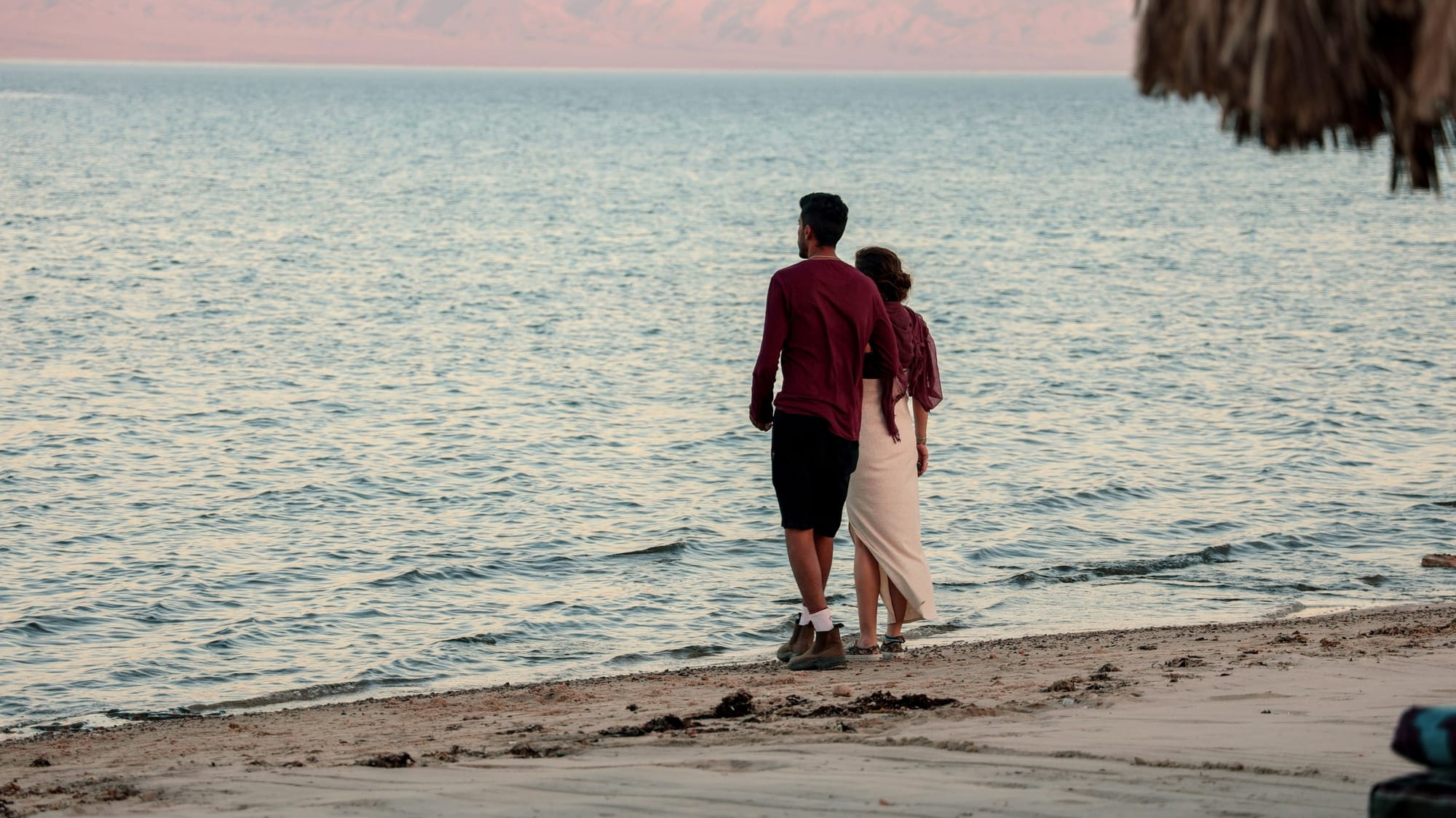
There’s something about farm life that rewires you. Touching soil. Hearing animals call in the morning. Watching the sun move across the sky instead of watching the clock. Your nervous system begins to exhale.
Most people don’t even realize how burnt out they are until they arrive. Especially city women who’ve been holding it all together for years. Always online. Always giving. Always doing.
Here, no one cares what you're wearing. No one’s performing.
You’re just here. With dirt on your hands and animals all around. With other humans doing slow, meaningful work.
In our farm, we’ve seen it again and again. People arrive tired, buzzing, disconnected. A few days in, they’re barefoot, moving slower, laughing louder, remembering how to breathe with the land.
My Personal Story
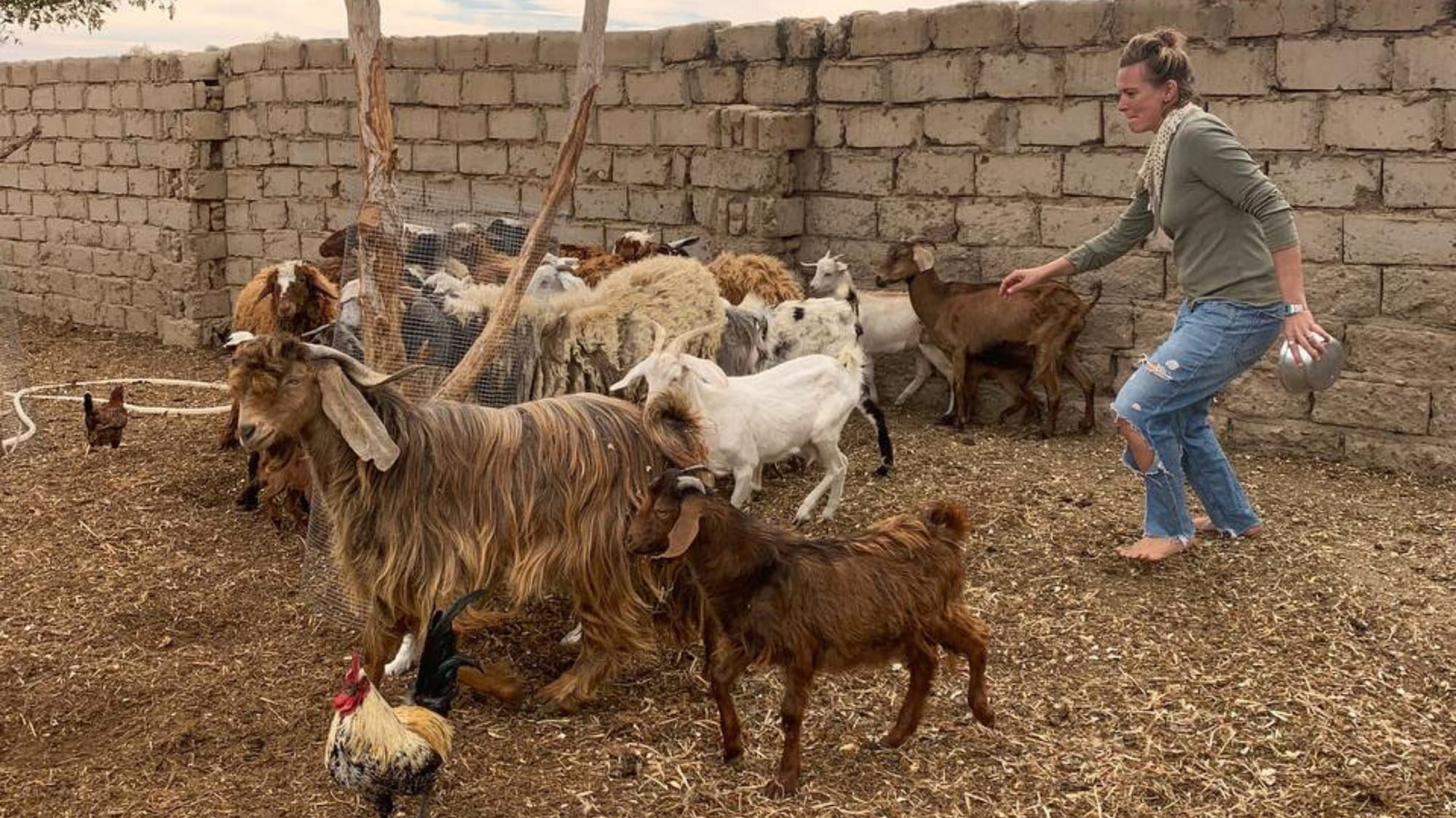
I am Alissa. My huband and I are the owners of Karima's Farm Camp, a regenerative farm in Nuweiba, South Sinai.
I didn’t grow up around farms. Not even close.
I come from a world where no one’s grandfather was a farmer for generations. Farming wasn’t romantic, it was something people looked down on. Something you were supposed to move beyond.
The first time I grew vegetables was in Farmville - yes, that Facebook game. That was my introduction to how food works. I had never seen anyone plant a seed. Never touched soil with the intention of growing something.
But then, I started visiting farms. It called me. Just out of curiosity at first. And something in me awakened. Something ancient. Something remembered. Suddenly, the it didn’t feel silly anymore. It felt inevitable.
Today, I live on a farm in Sinai with my family. We raise animals, grow food, host people from all over the world.
And I still have moments where I look around and think how is this my life? This used to feel completely outside of possibility for me. But God opened a door. And I walked through it.
This way of life, this rhythm of being close to the land, isn’t just healing me.
It’s healing the planet.
It reminds people of God’s system: balance, care, self-sufficiency, and natural abundance. It shows how life was meant to be lived with rhythm and roots.
It really changes you. It makes your whole being remember why you came here.
Why Nuweiba?
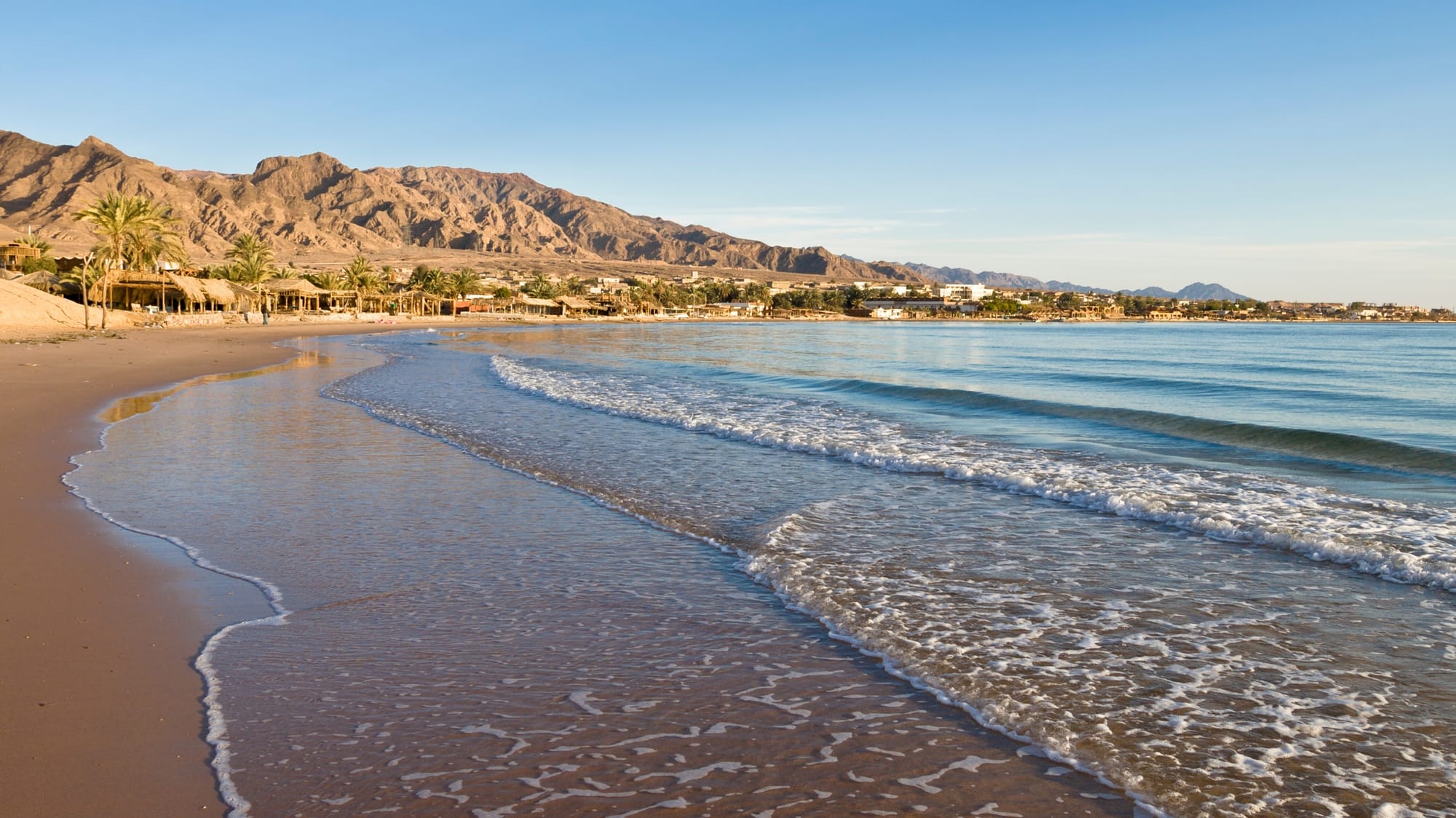
Nuweiba is where it all comes together.
Desert, sea, and mountain meet here in a way that feels raw, sacred, and untouched. It’s one of the last places on earth where you can still feel the land breathe.
This isn’t a trendy wellness hotspot or a curated eco-tourism destination in Sinai. It’s quieter than that. More intimate.
The farms here aren’t funded by corporations or built for Instagram, they’re held together by people who care deeply. They are Egyptians returning to the land, Bedouins protecting their ancestral ways, internationals who came and never left.
People who are growing food, raising animals, building compost toilets, and planting trees in sand because they believe in something better.
Nuweiba is becoming a living ecosystem of change.
A rising eco-hub rooted in humility, collaboration, and deep respect.
This Is An Invitation For You
If something in you feels called, follow it.
Eco Nueva is a growing collective of farms, eco-projects, and land-based experiences in Sinai, Egypt. Together, we’re creating a different kind of tourism, one rooted in care, community, and regeneration.
Whether you're curious to visit for a day, join the farm-hopping experience, or just start a conversation, we’d be happy to hear from you.
Make sure to follow us on Instagram @eco_nueva to see what we are up to and join our journey! You can send us a DM to book your spot for the Farm Hopping in Nuweiba.
